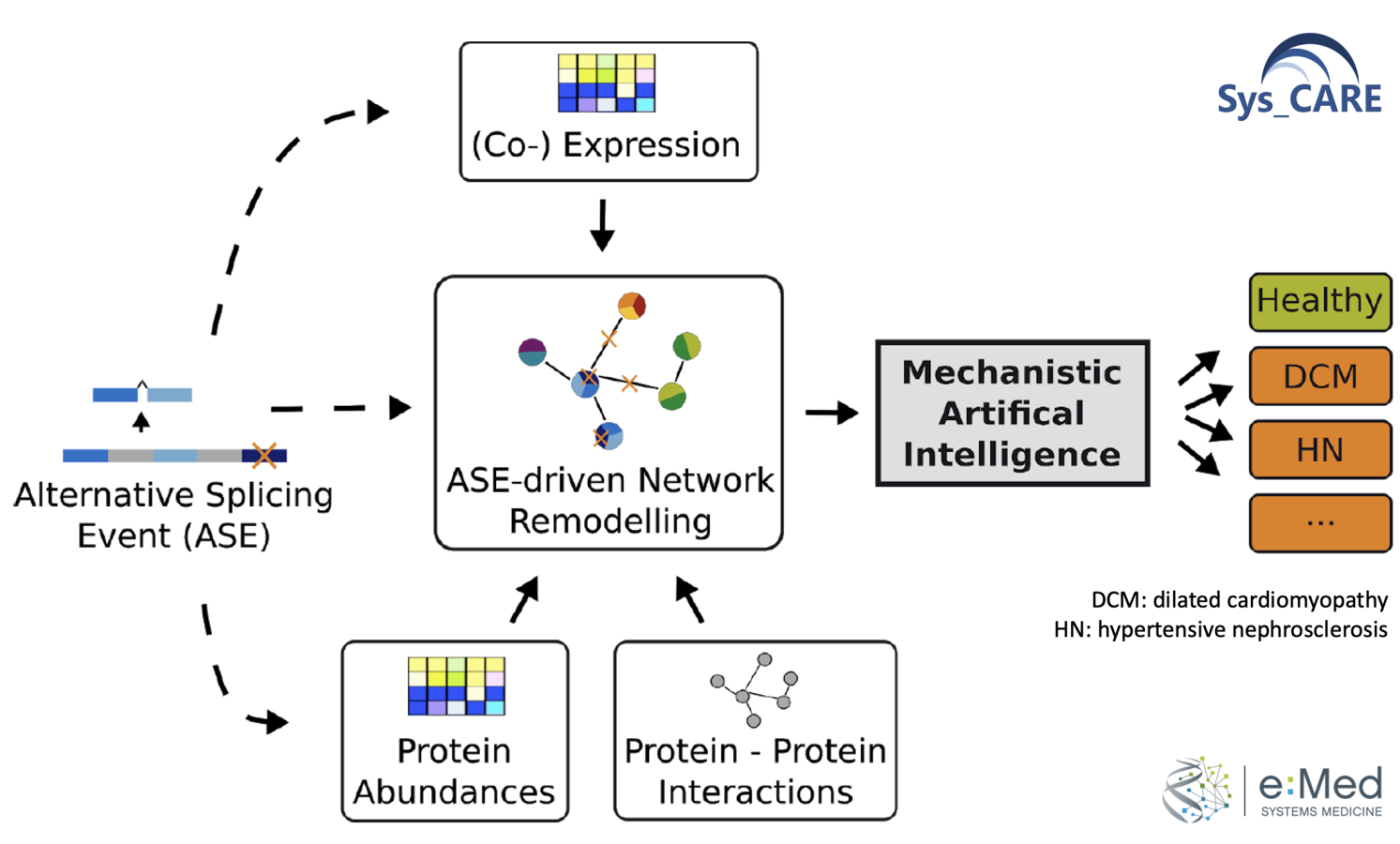Computational Systems Biology
Head: Prof. Dr. Jan Baumbach
The Computational Systems Biology research laboratory at Universität Hamburg investigates the molecular mechanisms driving diseases using artificial intelligence methodology and combinatorial optimization. We develop computational methods for Network and Systems Medicine, in particular for mechanotyping and redefining diseases by their mechanistic causes rather than symptoms. Here, we emerge novel ways for drug repurposing and synergistic pharmacology. We also develop privacy-preserving artificial intelligence tools to unleash the power of big data in precision medicine, where sensitive data may not be shared cross-institutionally for prediction model learning. The COVID19 pandemic has demonstrated that the data silo attitude puts massive researchers barriers in our way, which need to be overcome. We thus develop privacy-by-design methods, largely based on federated artificial intelligence, that respect individual privacy while still allowing for big data analytics.
Within the InterACt network we will make modern computational systems biology technology that was largely applied over the last years in cancer and other complex diseases (e.g. Casasa AI et al. PNAS 2019) to study infectious diseases like COVID-19 (e.g. Sadegh S et al. Nature Communications 2020, Galindez G et al. Nature Comp Sci 2021). In addition, we aim to link molecular structures with molecular systems to understand how small, local molecular alterations can cause systems-wide effects (e.g. Louadi Z et al. Nucleic Acids Res 2020, Rauch A et al. Nature Genetics 2019). We will collaborate primarily with Prof. Matthias Rarey, Prof. Kay Grünewald, and Prof. Maya Topf.
